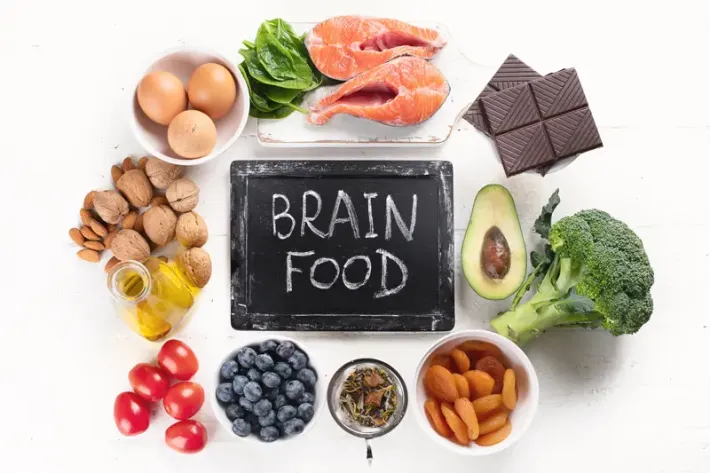In today’s demanding academic world, students need more than books—they need the right fuel for their brains. From late-night study sessions to brainstorming and critical thinking, cognitive health plays a vital role in performance. The good news? Adding a few brain-boosting foods to your daily meals can have a powerful effect on memory, focus, and overall mental agility.

Here are the top five foods proven to enhance memory and support brain health for students.
1. Whole Grains: Sustained Brain Energy All Day
Whole grains such as brown rice, oatmeal, quinoa, and whole wheat bread deliver a steady release of glucose—the brain’s main energy source. Unlike refined grains that give you a temporary spike and crash, whole grains provide long-lasting fuel for concentration and focus.
Why they work:
-
Packed with B vitamins that keep nerve and brain cells healthy
-
High in fiber, supporting stable blood sugar
-
Complex carbs break down slowly for consistent energy
How to Eat More:
Swap out white bread or rice for whole wheat or brown rice. Make oatmeal or millet a regular breakfast option.
2. Berries: Nature’s Brain Protectors
Berries like blueberries, strawberries, raspberries, and blackberries are not only delicious—they’re loaded with antioxidants such as anthocyanins that defend your brain from oxidative stress.
Why they work:
-
Protect brain cells from damage
-
Improve communication between neurons
-
Enhance memory, delay brain aging
How to Eat More:
Add handfuls of fresh or frozen berries to your cereal, yogurt, smoothies, or snack on them as is.
3. Leafy Greens and Bright Vegetables: Power Up Cognition
Vegetables like spinach, kale, beets, and carrots are nutrition superstars. Beets and carrots, in particular, are rich in nitrates and plant compounds that boost blood flow to the brain, enhancing mental clarity and speed.
Why they work:
-
Leafy greens provide vitamin K, folate, and lutein to sharpen thinking
-
Nitrates in beets help increase blood flow for better focus
How to Eat More:
Saute spinach with eggs for breakfast, add kale to smoothies, toss cooked beets or carrots into grain bowls or salads.
4. Nuts and Seeds: Tiny Nutrient Powerhouses
Almonds, walnuts, flaxseeds, and pumpkin seeds contain healthy fats, vitamin E, and plant-based omega-3s—all tied to improved cognition and memory.
Why they work:
-
Vitamin E shields brain cells from oxidative stress
-
Omega-3 fatty acids support signal transmission in the brain
How to Eat More:
Sprinkle nuts and seeds on morning oats, mix into trail mix, or blend into nut butter for a quick brain snack.
5. Fatty Fish: The Ultimate Brain Food
Salmon, sardines, and mackerel are loaded with DHA, the most important omega-3 fatty acid for brain function.
Why they work:
-
Build healthy brain cell membranes
-
Improve memory, mood, and learning
-
Reduce risk of mental decline
How to Eat More:
Include grilled or baked salmon in lunch or dinner, add canned sardines to salads, or cook a simple fish curry.
Easy Tips for a Smarter Plate
-
Stay hydrated with plenty of water for best brain function
-
Limit sugary snacks that spike and then reduce focus
-
Balance your meals with proteins, smart carbs, and healthy fats
-
Aim for variety: More colors on your plate = more brain-boosting nutrients
Final Thoughts: Feed Your Mind for Success
For students, eating well is as important as studying hard. A balanced diet that includes these memory-enhancing superfoods helps create the foundation for learning, sharp thinking, and academic achievement.